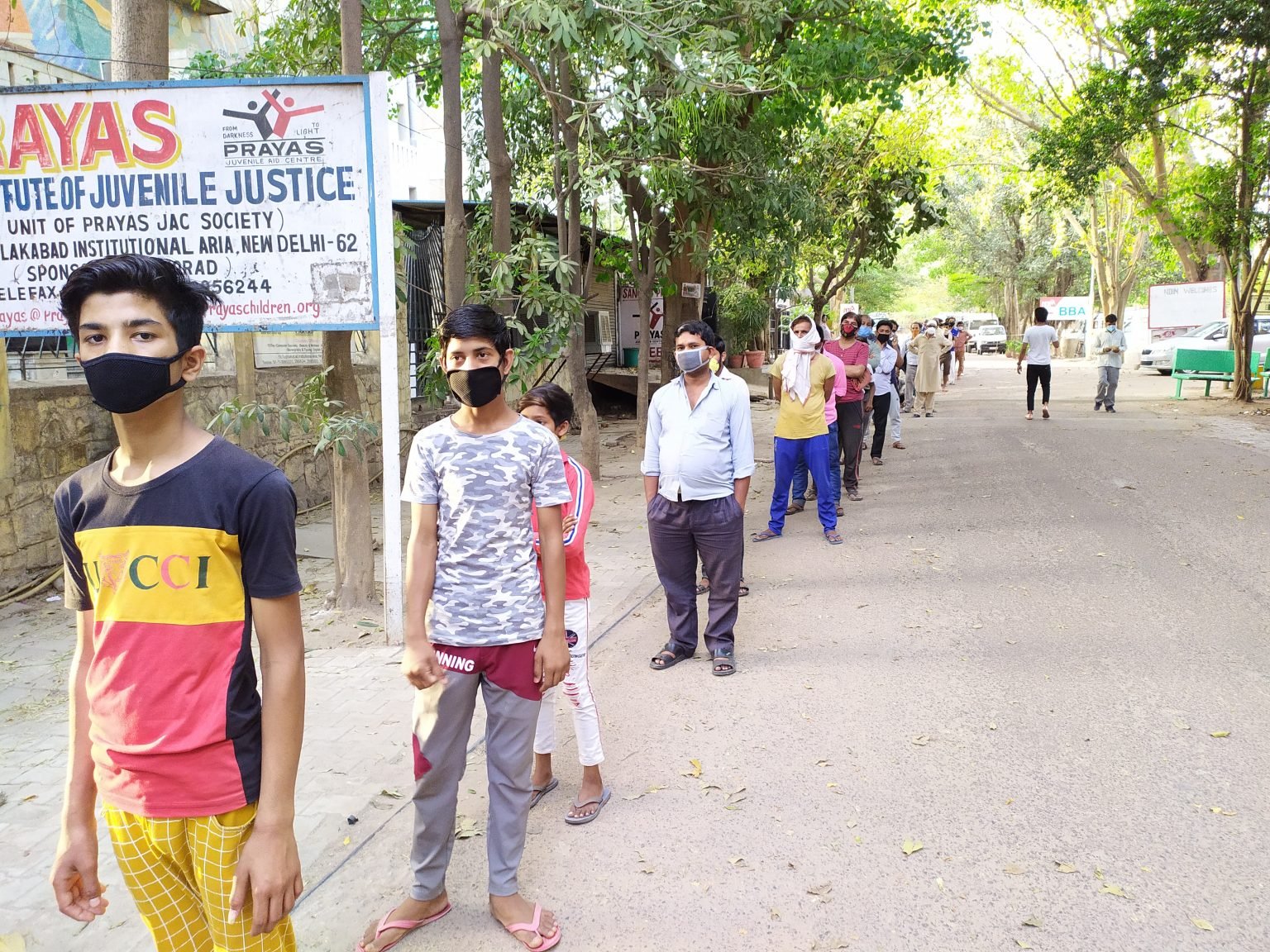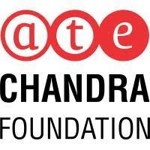India is one of the most densely popul+ated countries of the world. On an average 464 people live in an area of one square kilometer. And the urban slums in India are the most crowded and densely populated areas of the country. Sample this: the population density of Dharavi, Asia’s largest slum is 276,136/ sq km. At a time of a pandemic like the Covid-19, these areas are prone to become hotspots.
In other parts of the country, the JJ (Jhugghi Jhopdi) colonies or the urban slums have been hit hard by the lockdown. According to the Economic Survey of Delhi (2016-2017) three million people live in slums, almost without hygienic sanitation, drinking water facility and a clean place to urinate and defecate.
Supplying essential goods to these areas are a challenge. However, OneStage along with its implementing partner, Prayas has been able to reach out to slum dwellers from nine JJ clusters in Delhi and distributed hygiene kits and dry ration. The initiative has proven to be a temporary succor for the families.
Hidden within these densely populated slums are stories of courage and hope. The people living in these slums work as domestic helps, daily wage labourers, small time technicians/ skilled workers or hawkers. Their income has come to a standstill amidst the lockdown. Yet, they continue to live in the hope that one day, life will return to normal. Here are a few stories our on-ground teams discovered:
Salute to Saina’s determination
Saina, 25, is a mother of two little girls and a 10-year old boy. A domestic help in Sangam Vihar, Delhi, she is the sole breadwinner in her household as her husband suffers from permanent paralysis. Five years ago, Saina and her family migrated from Hajipur, Bihar to Delhi in search of work as well better medical treatment for her husband.
The lock down in the wake of the pandemic has left the family in a lurch. Her income has stopped. She has exhausted all her savings. While she was able to pay off her rent for the last month, she is unsure if she will be able to pay the rent for the next month. As more lanes of Sangam Vihar are being designated as containment zones, it will be more difficult for people in her area to have access to food. But Saina will not give up, she will continue to strive, all she needs is a bit of help.
Kumar Singh sees light at the end of the tunnel
Kumar Singh, 23, is a resident of JJ Camp, Tigri in Delhi. Prior to the lockdown, he used to work as hawker, selling foot mats in Khanpur and Dakshinpuri, supporting his family of seven members. Depending on the sales, he used to earn INR 400-500 per day.
Kumar’s father suffers from a heart ailment that has drained the family of all their savings. The lock down in the aftermath of the COVID -19 outbreak has left him at the mercy of others. He and his family are now entirely dependent on government or NGOs for rations or cooked food. The ration provided to him would help him sustain his family for the coming weeks.
Virendra’s Daily Ordeal intensifies with COVID-19 outbreak
Virendra from Sangam Vihar in Delhi is amongst millions of daily wage earners, who are finding it hard to survive during the lockdown. He is disabled and the only bread winner of his family of four. He used to work with a tailor in a local shop, but since March 22, Virendra is out of work, like the rest of daily wage workers. He does not get any regular income and his daily earnings were entirely dependent on the daily business of the shop. Virendra has exhausted his savings and cannot support his family. The dry rations he got through OneStage would help him sustain his family for the coming week. But he would need support for the next few weeks.
#Coronawarriors – a ray of hope for the Needy
Then we have people like Constable Ashok Kumar, who right from the beginning of the lockdown, has been tirelessly working for the wellbeing of the vulnerable communities living in Sangam Vihar, Delhi. Helping them receive cooked food and dry rations, Kumar has been constantly working with the team of Prayas, identifying the neediest people. Several daily wage workers, local street vendors, helpers in shops, have been provided cooked food and dry ration, thanks to his efforts.
The support provided to these families are a tiny drop in an ocean, yet its importance cannot be ignored. In the coming few weeks, they would need our help in leading their lives with dignity.
Search
Categories
Recent Posts
- A brief visit to a project site in Gurugram
- How was OneStage born?
- ‘The plight of people moved me, and the heroic efforts of frontline workers inspired me to support COVID Relief work’
- 7 ways to take care of your Mental Health during the pandemic
- 5 things you must keep in mind before forwarding information on COVID












.png)

.png)

